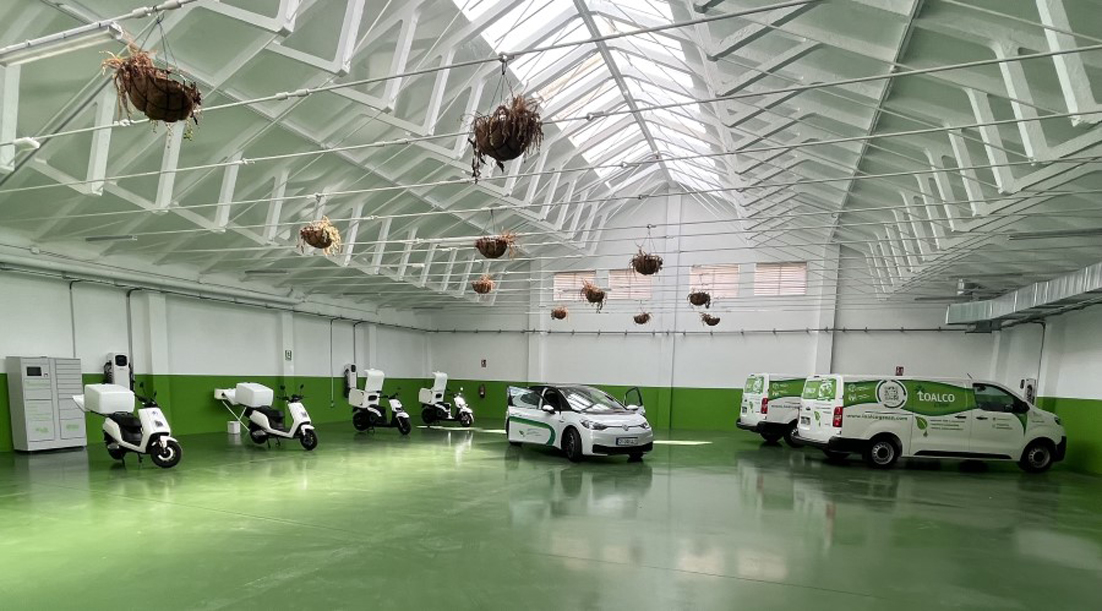Vodafone links refrigeration devices in Spain
- June 19, 2023
- Steve Rogerson

Vodafone is connecting the refrigeration devices that Loalco Green has installed in its electric delivery vehicles in Zaragoza, Spain, with IoT technology to monitor the temperature and humidity conditions of the goods.
The Novaltia pharmaceutical cooperative is the first company to use this technology, which makes it possible to ensure the cold chain is not broken and thus pharmaceutical products are transported securely.
Spanish logistics firm Loalco Green has also partnered with the Aragón Alia Logistics Cluster to create the Living Lab Zaragoza in its logistics centre, an open collaboration space that allows other delivery companies to use the facilities of this innovation hub.
Vodafone’s IoT technology makes it possible to certify the control of humidity and temperature conditions in merchandise deliveries. The agreement with the Zaragoza urban logistics services company Loalco Green promotes 100% sustainable mobility using faster and less polluting vans and electric motorcycles for the distribution of goods.
Loalco Green has incorporated isothermal boxes equipped with devices that connect to Vodafone’s IoT network into its Zaragoza delivery vehicles. Being connected through this technology, these devices allow precise monitoring of temperature and humidity conditions. In addition, the devices that motorcycles and delivery vehicles incorporate can be configured to issue alerts if the temperature rises so the delivery drivers can replace the ice sheets of the isothermal boxes.
The logistics sector is one of the many sectors in which Vodafone already applies its IoT technology, such as security and connected alarms, banking through means of payment, connected fleets, renewable energy, agriculture, waste management, and water management. Specifically, in the logistics sector, this technology makes it possible to monitor the status of vehicles or other logistics assets, to increase efficiency in delivery routes and reduce waiting times, and to manage inventories more efficiently.
“We bring our commitment to innovation and sustainability to the field of logistics through this project, which combines the best IoT connectivity from Vodafone with the good work of Loalco and Novaltia, and which shows once again how technology becomes at the service of society with innovations in the different economic sectors,” said Diego Presa, territorial director of Vodafone in Catalonia and Aragon.
Alberto Blanco, CEO of Loalco Green, added: “Urban freight operators are immersed in a process of profound transformation that must necessarily guide us towards a zero-emissions model, which does not imply unnecessary inconvenience to citizens and which incorporates the necessary technology so deliveries are sustainable and effective and to ensure customers are more and better informed. Having Vodafone’s IoT technology has helped us go one step further and incorporate an innovation that has already proven to be very useful in sectors as relevant as pharmaceuticals or food.”
The Novaltia pharmaceutical cooperative was the first company to use this service for the transport of pharmaceutical products. For Novaltia, it is essential to guarantee transport is carried out in secure conditions to guarantee the cold chain is not broken during journeys.
“As a pharmaceutical distribution cooperative, our mission is to provide citizens, through the network of partner pharmacies, all medicines and pharmaceutical products, which means traveling more than 17,000km every day,” said Daniel Martín Mainar, director of logistics at Novaltia. “Participating in this collaborative last-mile delivery project with zero-emission vehicles is another step in our commitment to apply innovations to the pharmaceutical supply chain that promote sustainability and smart mobility.”
It is expected the technology will soon reach the food sector, in which adequate control of temperature and humidity during transfers helps guarantee the quality, safety and freshness of food, especially perishables.
On the partnership with Alia, the Aragon Logistics Cluster, to create the Living Lab Zarazoza, Alejandro Herráez, technical director of Alia, said: “Urban logistics has become an increasingly complex challenge in our cities. The growth of ecommerce, changes in consumption patterns and the need to reduce CO2 emissions are just some of the aspects that we must address together. In this context, the living lab that we are promoting assumes a fundamental role as a catalyst for collaboration between companies, institutions and society in general to encourage the adoption of smart solutions that allow for more efficient, safe and respectful mobility of goods.”




